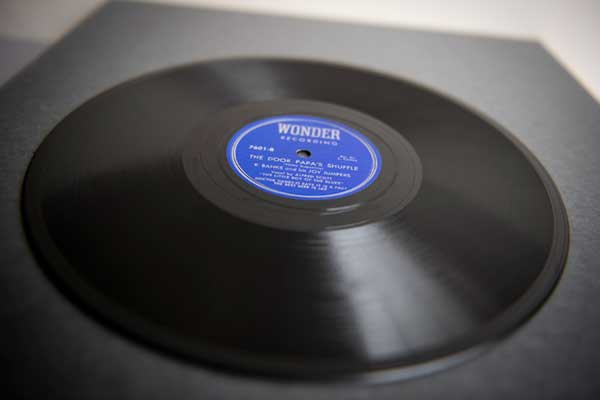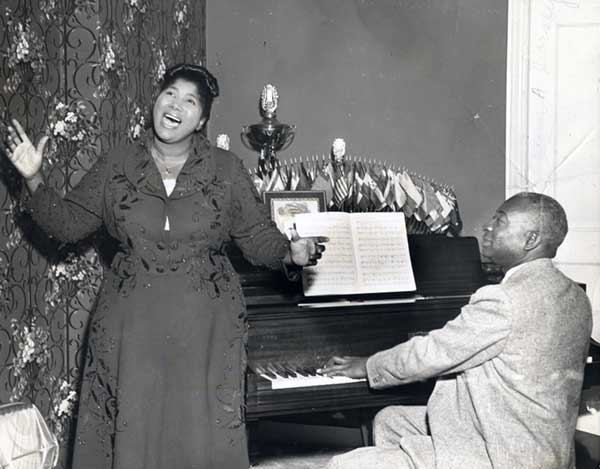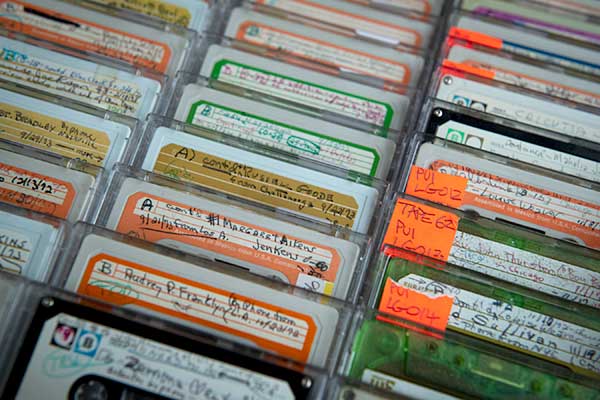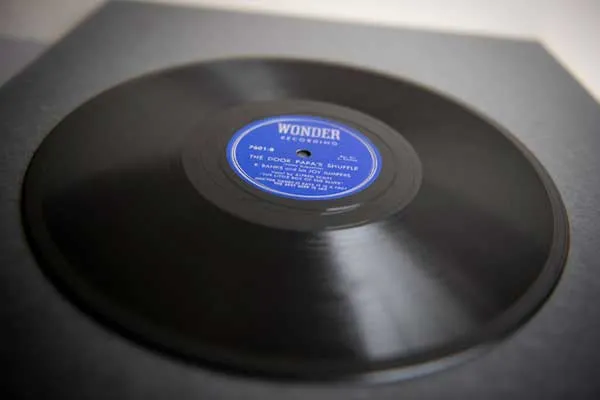
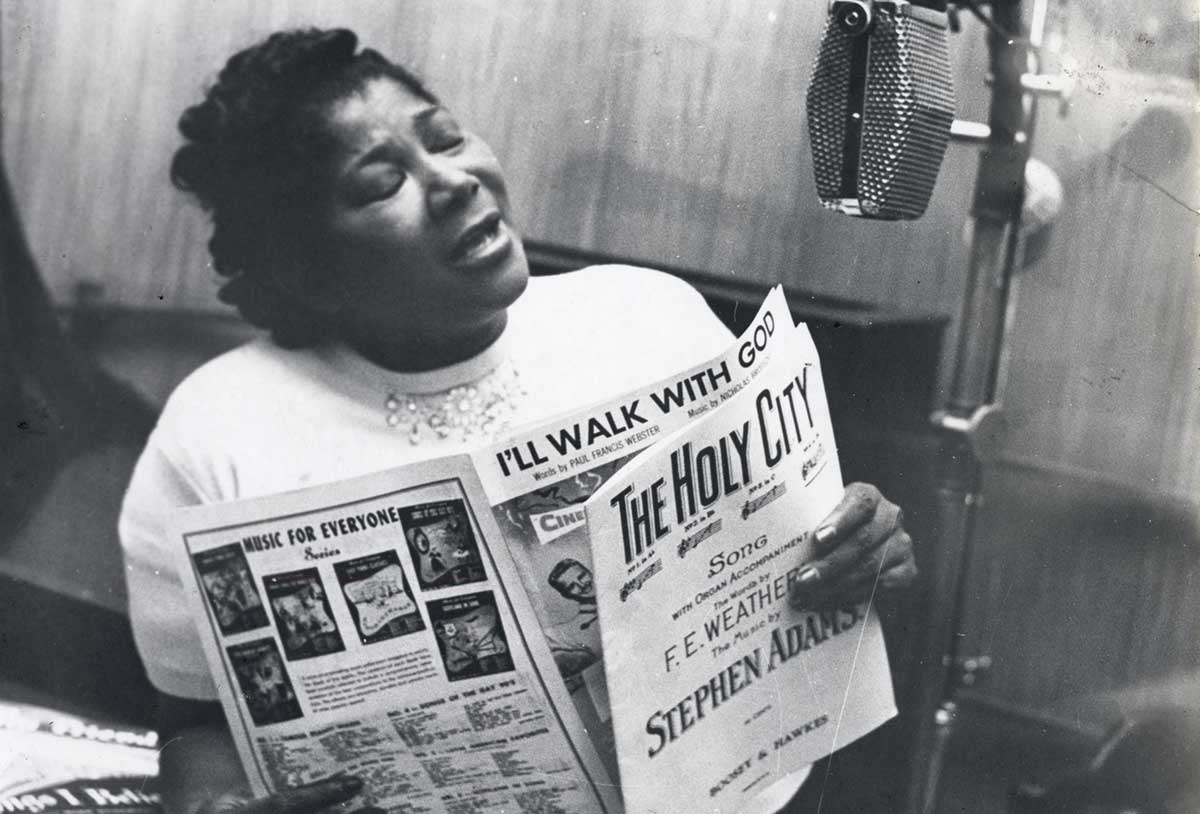
In a 1958 interview for DownBeat Magazine, New Orleans' Mahalia Jackson told writer Studs Terkel, “We shouldn’t forget our roots, our history.” Jackson, one of the most significant artists in twentieth-century American culture and music, couldn't have been more accurate. It is the history of New Orleans, which involves cultural, intellectual, architectural, and sociological innovations, that has influenced both the historical narrative and current developments of life in the U.S. And the Hogan Jazz Archive, housed within Tulane University’s Special Collections, helps to tell these important stories to students, community members, and researchers around the world. The Hogan is a leading resource in the study of New Orleans music, its musicians, practitioners, and participants, and has been since its founding in 1958 as the Archive of New Orleans Jazz. Through the stories contained within its collections, users gain a greater understanding of New Orleans’ contributions and its global implications.
Archives maintain and make accessible rare, non-circulating items, including correspondence, photographs, sound, moving image materials, business papers, and more. These records are important because the objects and information contained within preserve and share histories of people, places, and events.
Most recently, as curator of the Hogan Jazz Archive, I’ve been thrilled to serve as a project manager for two major grant awards that Tulane University Special Collections recently received from the GRAMMY Museum Grant Program and the Council on Library and Information Resources (CLIR). These awards will support the digitizing and accessibility efforts of collections that will interest scholars of U.S. political science, women’s studies, African American history and cultural studies, media and communications, musicology, and New Orleans history, among other disciplines.
Through generous support from the GRAMMY Museum Grant Program, Tulane University Special Collections is preserving and digitizing 25 recordings from the collection of New Orleans broadcast pioneer Vernon Winslow, popularly known as Dr. Daddy-O. Winslow, credited as the first Black radio disc jockey to host his own full-length radio show in New Orleans, began his on-air career in 1949 when Jax Brewery embraced his style and scripts for the “Jivin’ with Jax” show. The 78 rpm and 33 1/3 rpm acetates selected for digitization include material used in broadcasts aired between 1949 and 1958, including live remotes; personalized promo announcements for New Orleans bars, music clubs, and the renowned J&M Recording Studio; and interviews with legendary artists such as Roy Brown, Duke Ellington, Avery “Kid” Howard, and Little Esther Phillips. Once digitized, the recordings will be accessible to the public online through Tulane’s Digital Library.
In addition to the GRAMMY Museum grant, CLIR awarded Tulane University Special Collections a Recordings at Risk Grant to support “Tell the Real Story of Me: Mahalia Jackson and Black Gospel Quartets in the South” in 2019. The project will preserve and give access to original recorded interviews with Jackson, not only heralded internationally as “The Queen of Gospel,” but also recognized as a Civil Rights Movement activist and an influential figure in Black American culture. Interviews conducted from 1967-1974 by Jackson’s biographer Laurraine Goreau also include primary accounts of Jackson by entertainers Ella Fitzgerald, John Hammond, Della Reese, and Dinah Shore; Southern Christian Leadership Conference (SCLC) co-founder Reverend Ralph Abernathy; television host Ed Sullivan; gospel stars J. Robert Bradley, Thomas A. Dorsey, Sallie Martin, and Albertina Walker; and Pulitzer Prize-winning author Studs Turkel, among other influential figures.
The CLIR grant award will also help to preserve and provide access to interviews with Black gospel quartet singers and practitioners, serving as an oral history of the regional Black gospel quartet music scene that both predated and assisted Jackson’s international success. In interviews conducted from 1981-1986 by scholar and Tulane University Special Collections library associate Lynn Abbott, gospel performers like Mary Thames Coleman, Reverend Paul Exkano, and Bessie Griffin; local blues and rhythm & blues heroes such as Chuck Carbo and Snooks Eaglin; and other obscure and familiar artists explain the development of Black gospel quartets in New Orleans.
These two oral history digitization projects, in addition to all future Tulane University Special Collections initiatives, will continue the mission to not only document and tell stories about our history via archives but also to make collections accessible to all. Through these collections, researchers can discover alternative perspectives, overlooked stories, and new multidisciplinary approaches to reviewing and learning the people, places, and culture of New Orleans and the surrounding region. And, as a result, never forgetting our history.
